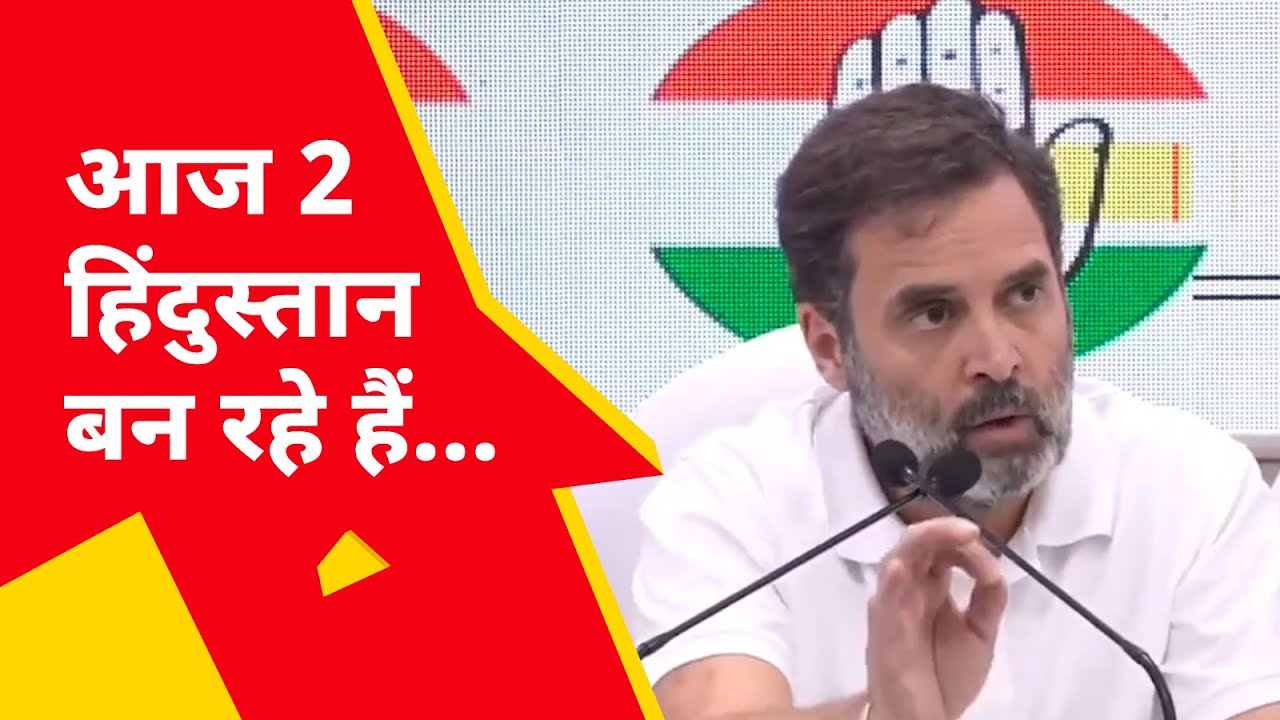


During a tense Lok Sabha session, Congress leader Rahul Gandhi and BJP MP Anurag Thakur engaged in a heated exchange over the demand for a caste census. Thakur's veiled reference to Gandhi sparked controversy, prompting the Congress leader to assert that he will not be deterred by insults. In response, Thakur continued to ridicule Gandhi, questioning his knowledge of his role as Leader of the Opposition and taunting him for relying on notes during speeches.
Caste Census Controversy: Rahul Gandhi and Anurag Thakur's Heated Exchange
Background
The demand for a caste census in India has been a contentious issue for decades. Caste, a social stratification system based on birth, has historically divided Indian society into hierarchical categories. Accurate data on caste distribution is crucial for understanding social inequalities and implementing policies for inclusive development.
Lok Sabha Debate
On August 4, 2022, during a heated discussion in the Lok Sabha, Congress leader Rahul Gandhi raised the demand for a caste census. He argued that such a census would help document the discrimination faced by certain caste groups and facilitate targeted interventions.
BJP MP Anurag Thakur responded by questioning Gandhi's motives and making a veiled reference to his lineage. Thakur's comments sparked controversy, with the Congress accusing him of casteism.
Rahul Gandhi's Response
Gandhi hit back at Thakur, stating that he would not be deterred by insults. He asserted that he was committed to fighting for the rights of all marginalized groups, including those from lower castes.
Thakur's Continuing Ridicule
Despite Gandhi's response, Thakur continued to mock him. He questioned Gandhi's qualifications as Leader of the Opposition and taunted him for using notes during his speeches.
Top 5 FAQs and Answers
1. What is a caste census?
A caste census is a comprehensive enumeration of the caste composition of a population. It collects data on the caste of each individual, along with other socio-economic indicators.
2. Why is there a demand for a caste census?
Accurate caste data is essential for understanding caste-based discrimination and implementing affirmative action policies effectively. It can help identify the most marginalized groups and target interventions to address their needs.
3. What are the arguments against a caste census?
Opponents argue that a caste census would exacerbate caste divisions and create a sense of victimhood among certain groups. They also fear it could be used for political mobilization and vote bank politics.
4. Is there a legal basis for demanding a caste census?
The Constitution of India does not explicitly mandate a caste census. However, the Supreme Court has ruled that such a census can be conducted for the purpose of collecting socio-economic data.
5. What are the next steps in the caste census debate?
The Bharatiya Janata Party (BJP)-led government has opposed a caste census, citing concerns about its potential for social division. The Congress and other opposition parties have continued to push for its implementation. The ultimate decision on whether to conduct a caste census rests with the government.

Union Home Minister Amit Shah spoke at the inauguration of the 60th DGsP/IGsP conference in Raipur where he stated that Naxalism in India will be fully eliminated before the next conference. He also highlighted the government's efforts in strengthening the security grid and providing permanent solutions to long-standing national security challenges. Shah emphasized the importance of intelligence and collaboration with agencies to tackle drug trafficking and organized crime. He also mentioned the strengthening of India's policing framework, making it amongst the most modern globally.

In a recent Q&A session, Professor Michael Clarke addressed the impact of a leaked call between Donald Trump's envoy and Russia on peace talks. He also discussed Putin's desire for a great legacy, which has led to a lack of pragmatism. According to Clarke, approximately 4,000 main battle tanks and 30,000 pieces of armoured equipment have been destroyed in the conflict, with Russia focusing on building more complex modern tanks. Don't miss out on these insightful answers from the expert.

Following his party's disappointing performance in the recent Bihar Assembly election, politician Prashant Kishor has raised concerns about the voting results, stating that they did not align with the public sentiment he witnessed during his campaign. Despite this setback, Kishor remains determined to build a stronger political organization and continue engaging with the public in preparation for future elections. He also addressed criticisms of his role as an election strategist, reminding critics that one loss does not define his political future.

Indian government under the leadership of Prime Minister Narendra Modi has introduced four new labour codes aimed at protecting the rights and well-being of 40 crore workers across the country. Union Minister Mansukh Mandaviya has hailed the move as transformative and a major step towards ensuring the welfare of the workforce. The new codes bring in much-needed changes such as formalisation and transparency through appointment letters, and universal social security coverage for all workers including gig and platform workers.

In Uttar Pradesh's Lakhimpur Kheri, a police constable is in hot water for allegedly forging a court order to clear his name in an old case, with the intention of securing a promotion. The fabricated document surfaced during an internal investigation, prompting authorities to file a fresh case against the constable. This incident adds to the growing issue of corruption and misuse of power within the police force.

The Supreme Court has directed the formation of a Special Investigation Team (SIT) to conduct a fact-finding inquiry against Vantara, an animal rescue and rehabilitation center in Gujarat, following allegations of non-compliance with laws and acquisition of animals. The SIT, headed by former apex court judge J Chelameswar, will also look into reports of irregularities and complaints from NGOs and wildlife organizations. Vantara has assured full cooperation to the probe and reaffirmed their commitment to animal welfare.

The ongoing family feud within the Rashtriya Janata Dal (RJD) continues to escalate as three more daughters of party patriarch Lalu Prasad Yadav have left the family residence in Bihar's capital Patna. This comes just a day after another daughter, Rohini Acharya, publicly denounced the family and quit politics following the party's poor performance in the recent elections. Amidst allegations of insults and mistreatment, the saga continues to unfold within the Yadav family.

In a special lecture series in Bengaluru, RSS chief Mohan Bhagwat emphasized on the Hindu identity as a responsible and proud son of Bharat Mata. He urged the Hindu society to come together and share the message of 'Vasudhaiva Kutumbakam' with the rest of the world. Bhagwat also recalled the RSS founder and its journey of facing opposition and growth through dedication and sacrifice of its volunteers.

As the West Bengal Assembly elections near, the political battle between Bharatiya Janata Party (BJP) and Trinamool Congress (TMC) has intensified on social media. Following the BJP's victory in Bihar, the party declared its hopes to defeat TMC in Bengal on a popular platform, while TMC leader Kunal Ghosh responded with a proverb highlighting the BJP's potential failure in Bengal. Despite BJP's confidence, TMC remains unfazed and asserts their strong hold in the state.

Congress leader and Leader of Opposition in Lok Sabha, Rahul Gandhi, was criticized by BJP's Shehzad Poonawalla for going on a jungle safari in Madhya Pradesh's Satpura Tiger Reserve instead of focusing on the ongoing Bihar elections. Gandhi had earlier claimed that "vote theft" had taken place in several states, including Madhya Pradesh. BJP's Poonawalla mocked Gandhi's "priorities" and referred to him as the "Leader of Paryatan and partying."